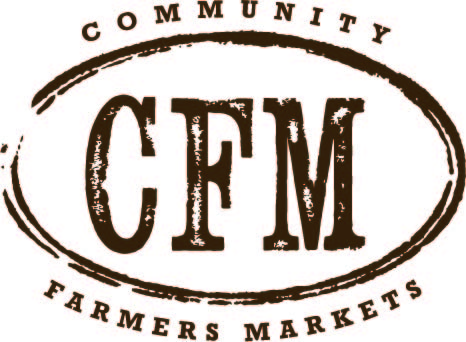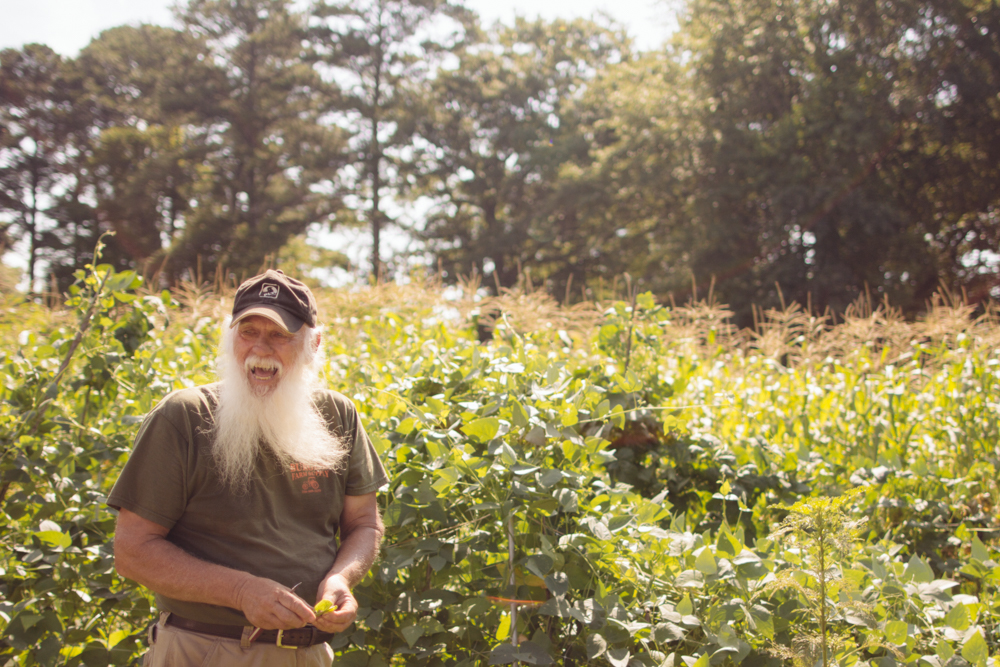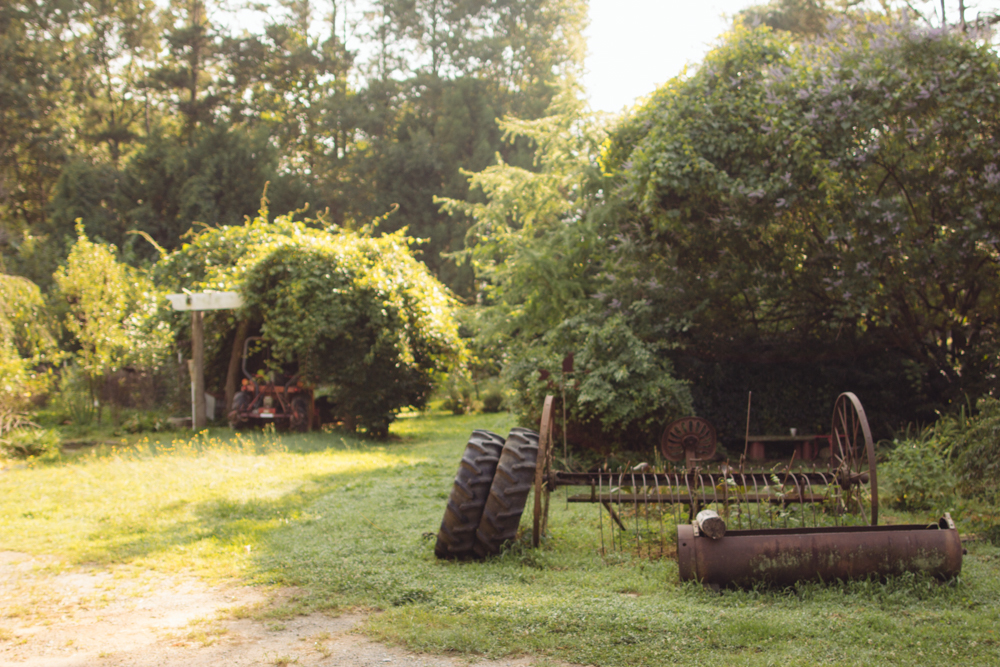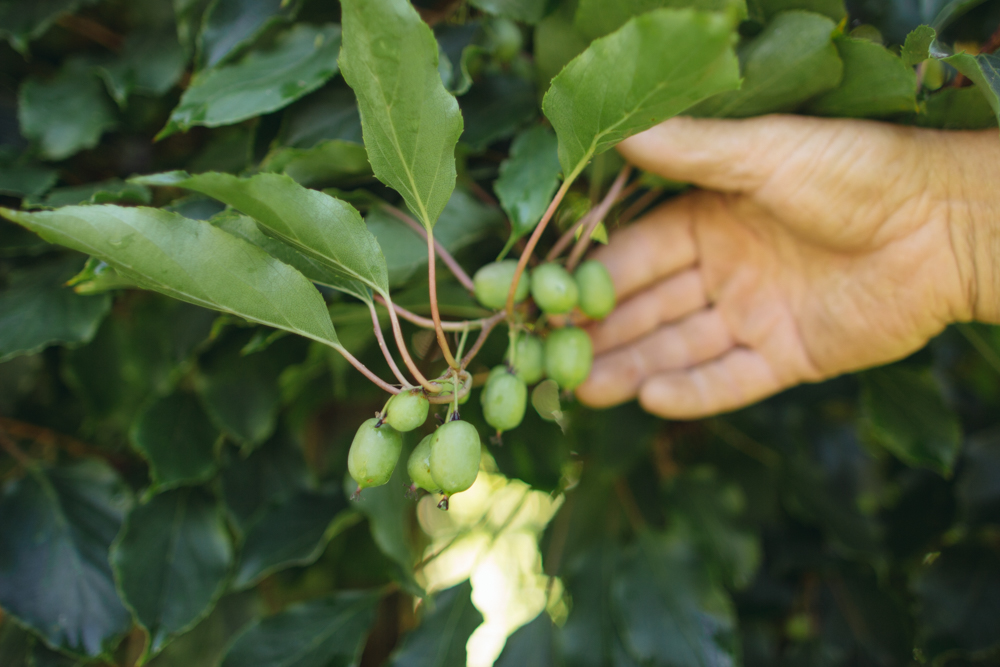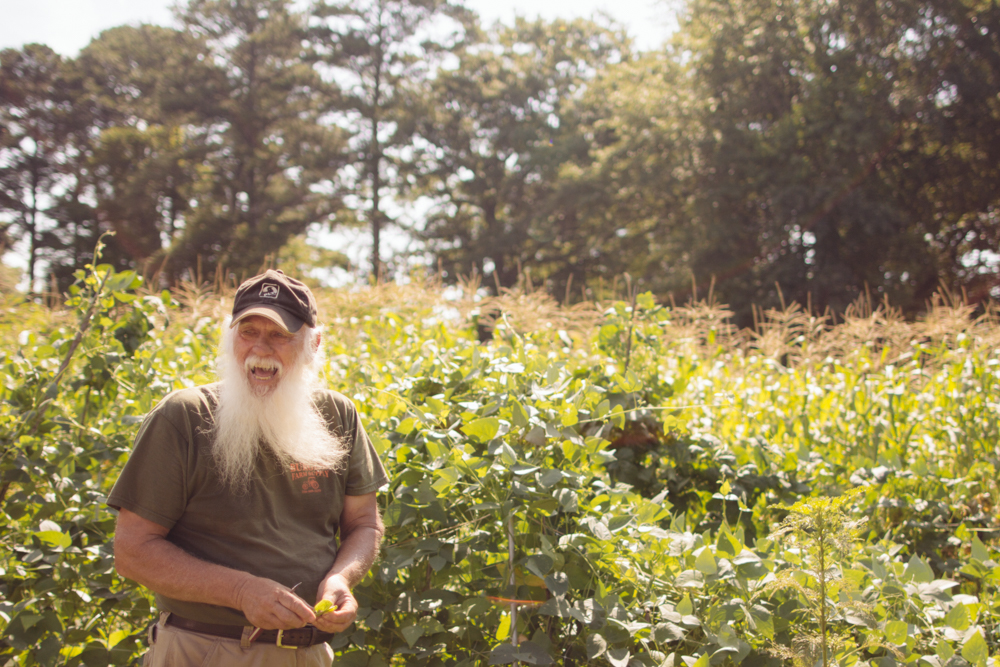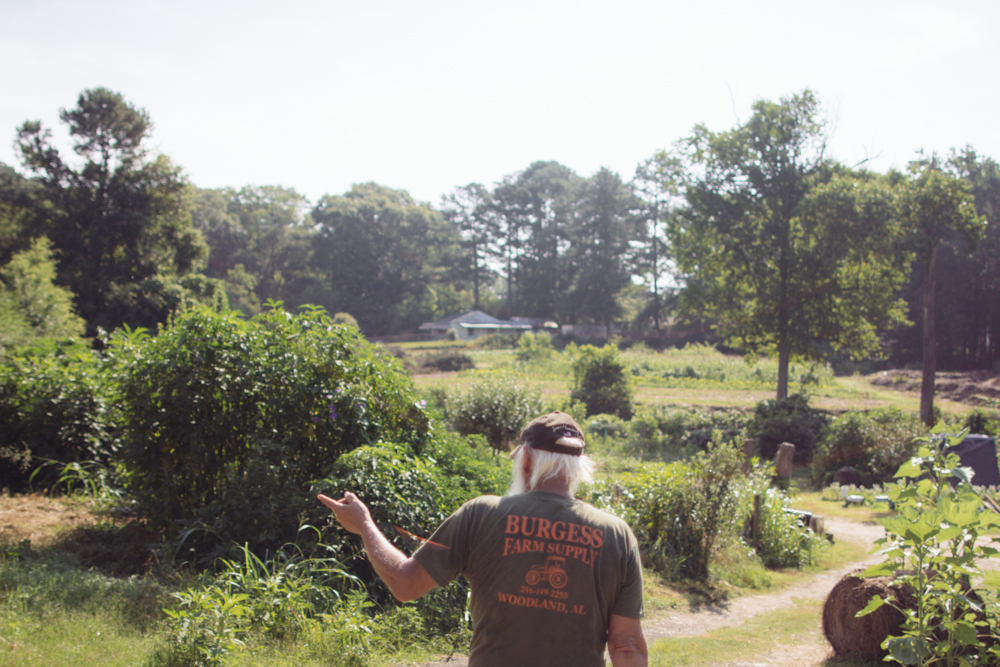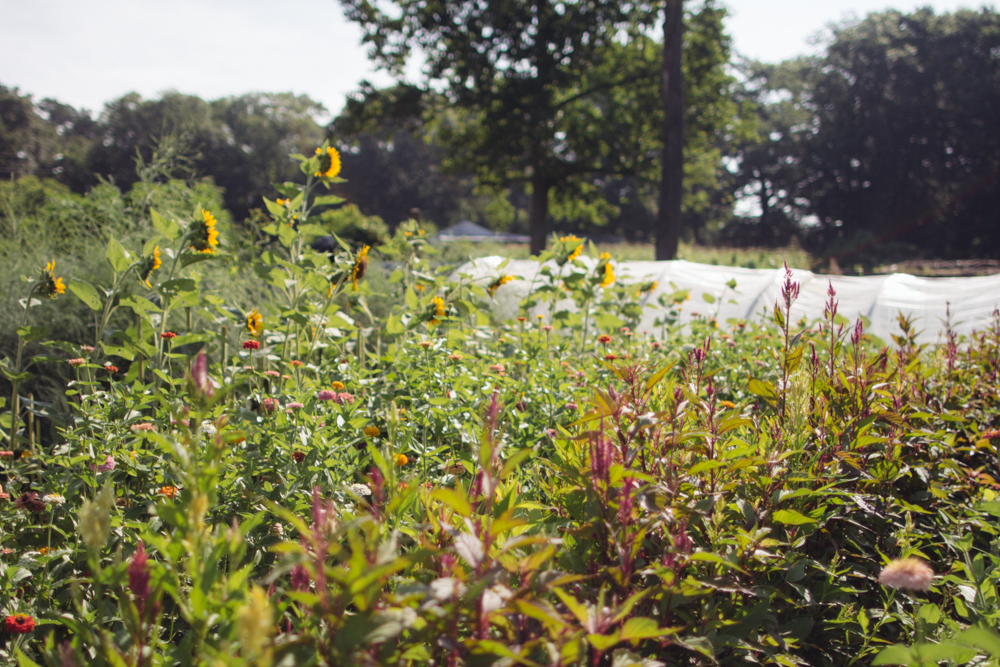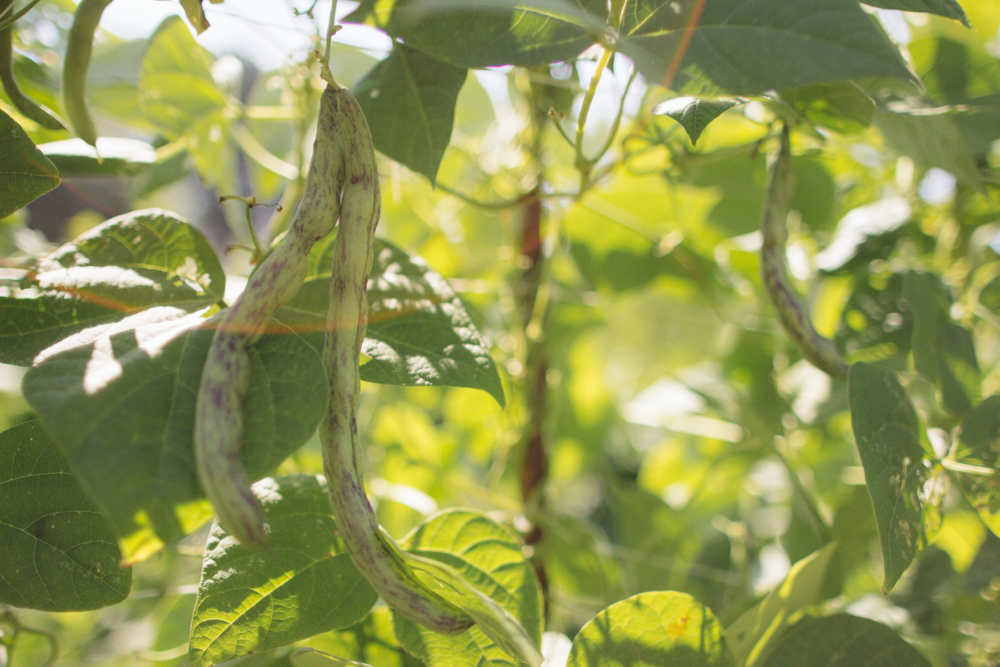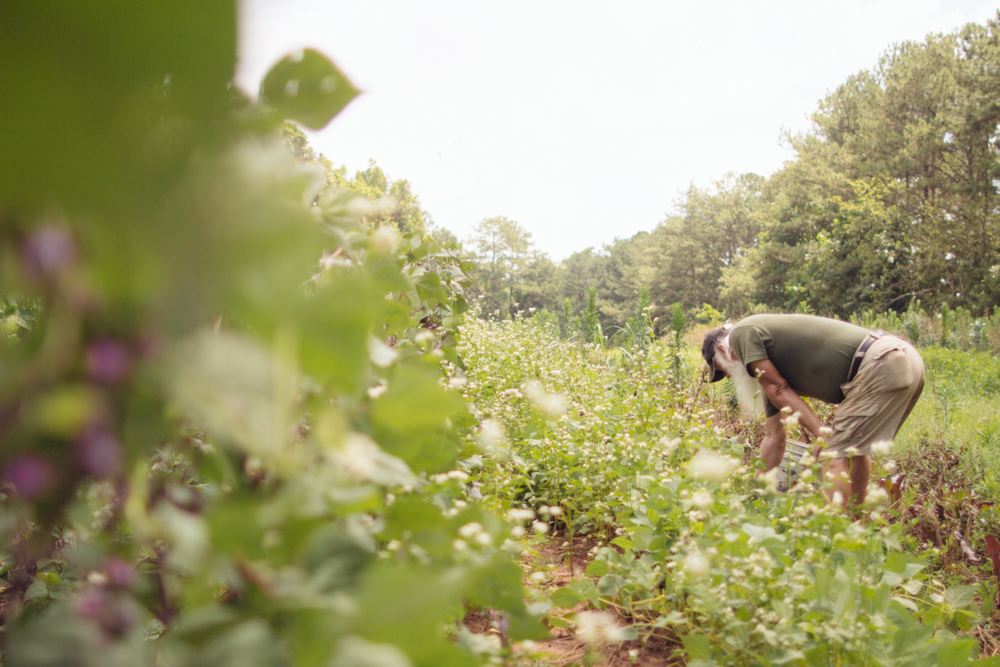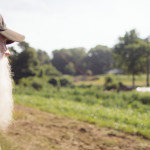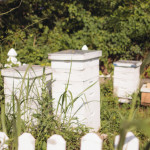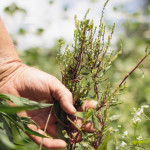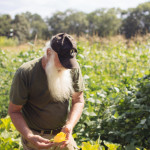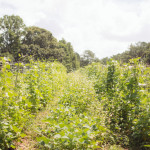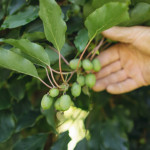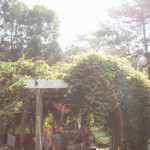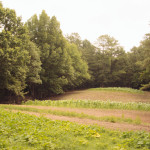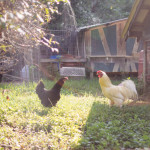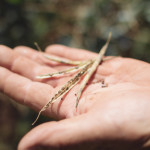{written by Alex Lampert, photos by Jenna Mobley}
When I asked Tony Scharko if I could write a story about him, he responded, “A story? I can’t imagine what good that would do. What I need is for people to come pull up the weeds that are growing everywhere on my farm.” Thus, a few of us from CFM find ourselves driving down to Fairburn early on a Friday morning for a working tour of Scharko Farms, and a look inside how it came to be.
Driving up to Scharko Farms is like walking into an oasis. Tucked in by thick trees surrounding the property, the broad, rolling knolls are covered in crops, each one densely tucked into its rightful spot, a stark contrast to the industry that surrounds the town of Fairburn. Pulling up into the driveway, bamboo borders the opposite side of a creek to the left and a tall, elongated arbor covered in kiwi vines with kumquat-sized, bright green fruits sits to the right, just past an old plow. Walking past the turkeys, bee hives and flower beds, towards the middle of this plot of land, we see trellises hosting tomatoes and beans in rows along the small hills with colorful, fertile beds that seem to spontaneously spring up out of the ground. There are fig and apple trees, and beyond where we can see, row after row of squash, corn and buckwheat grow out by a big compost heap.
Tony takes us through everything that’s growing as we harvest squash and beans along the way throughout the morning. His manner of speech sounds like a cross between an auctioneer, a blackjack dealer and a comic. Words playfully pour out of the top of his chest-length, white beard so quickly that it’s not easy to keep up with the old man — like many people who love what they do, he manages to insinuate laughter in his many words without making the sounds of it. But it’s not all just talk; he certainly walks the walk, and has. His twang disguises any hint of an early youth spent in Germany before he and his family immigrated to the U.S. in the forties.
Tony’s family was from Poland, but they, like many others had to do, joined the war effort in Germany in World War II. What had started out as work that offered security and a decent life in the early part of the war, quickly became hell by the end. But, Germany was where Tony was born, and after the end of the war, the Scharkos remained in their new country as Displaced Persons instead of returning to their homeland that now appeared to them as unrecognizable chaos.
They came to Georgia by way of the port in New Orleans, thanks to an ad in a Reader’s Digest. A farm was seeking help and so the Scharkos moved there, and stayed, living and working on the farm for more than 30 years. Before that, the family had been farmers for generations. “My family in Poland were all farmers. Farmers and soldiers. They worked the land of the lord, and when the lord went to war, they bore his coat of arms, and when war was over they went back to farming,” Tony explained. He, too, is a farmer and a war veteran.
Everywhere he takes us has plenty of microplots with their own stories, like the thicket of cacti that he planted where nothing else could hold, or the deep pit filled with elderberry bushes. There’s a small bed of kale that someone had sown in the spring because they needed land and the Scharko’s offered theirs for free. And for every little section of ground, Tony has a few more ideas of what else he could do with it, but, like he says, “there’s only so much fun one person can have.”
And it is fun, especially now that he’s gained so much experience, his farm seems to operate smoothly. Like any production operation, once you work out the kinks and figure out efficiencies, it becomes more fun, easier to add on to, and a good place to train aspiring farmers.
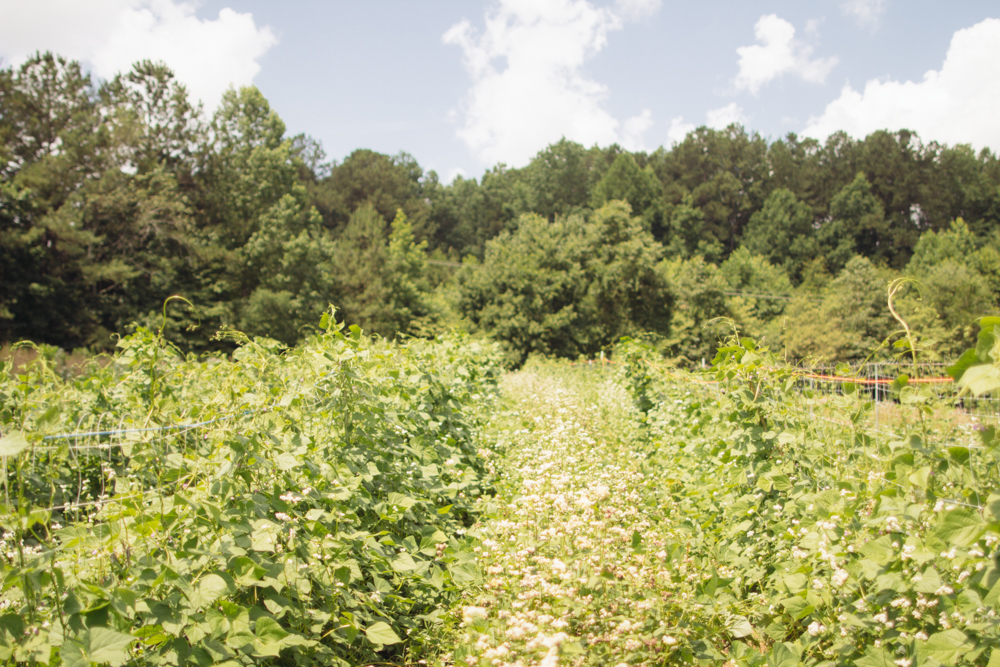
Many farmers that we know around Georgia have been mentored or helped in some way by Tony and Linda Scharko. They loan their tractor out to farmers who can’t afford one. They work with Chris of Crack in the Sidewalk Farmlet. They’ve provided land for Garrett of Furrowed Earth Farm. They’ve trained Mary Yetter who currently works a plot at Decimal Place Farm. “I like working with people who like to work,” Tony explained. He understands how hard it is for farmers to make their start today, and he’s more than happy to help those who need it.
“You gotta have a reason for what you do,” he said, “I do it all for Linda.” Linda, Tony’s wife, also grew up in Fairburn. He credits her with every reason behind why he’s farming here today, and, yes, there’s a good story there, too, but there’s only so much fun we can have in this article for now. Stay tuned for another edition on that story.
